- in Health , Weight-Loss by tony
Sugar Addiction is Sweet and Dangerous
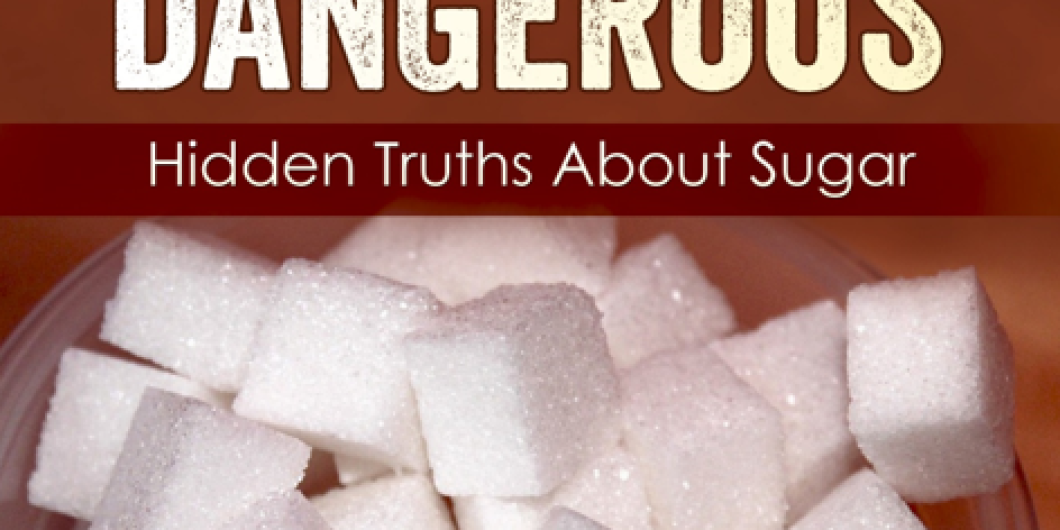
Natural sugar occurs in many foods in varying amounts. Unnatural or added sugars are predominantly table sugar or sucrose and high fructose corn syrup. When these sugars are consumed over a period in higher amounts, they can have extremely damaging effects on your health.
More...
Introduction
The sugar industry, and sub-industries it underpins are commercial giants; it is in their best interests to show their products in their best light and to downplay any negative claims regarding sugar.
Awareness of a sugar/disease link is following a pattern not unlike that of tobacco; sporadic, often suppressed medical research and largely disregarded anecdotal evidence, leading to a build-up of ‘alternative’ expression and claimed cures.
At the stage we are now, the mainstream press is making some comment on the subject, while still being careful not to alienate their advertisers. Today the internet is the hugest driver of information (and misinformation).
Amid all the claims and counter-claims, there is convincing proof that consuming added sugar is bad for human health. Added sugar is that which does not occur naturally in the food being eaten.
This document explores some of the research that will hopefully help you to make more informed decisions about sugar and their health.
Why Additional added Sugar Should be Avoided in our Meal
No matter what advertisements say about their sugar-containing foods, the fact remains that the healthy nutrients have been replaced with sugary alternatives to make it cheaper and palatable, but they are poor sources of nutrients.
For example, agave and maple syrup are loaded with sugar and manufacturers claim that they also contain trace amounts of vitamins and minerals.

However, you should not expect that you will be able to obtain your daily recommended intake of zinc, iron and other nutrients by drinking or eating these sugar-containing foods.
If you are serious about your health, you should reduce your consumption as much as possible.
Your body does not need sugar; it will best obtain all its needed energy from a whole foods diet with a balance of protein, fats and complex carbohydrates.
Sugar itself provides no nutrient value and usually delivers glucose and fructose in amounts that the body cannot immediately utilize, meaning it is usually converted to body fat.
Sugary Foods are Potentially Addictive
Sugar is identified as an addictive substance by many experts because it activates the food reward centers in a person’s brain which turns on the vicious cycle of cravings and dependence.
Even if the addictive effects of sugar are milder than morphine or cocaine, high sugar consumption can also turn into a real addiction. Persistent high intake will increase the risk of diabetes, weight gain and PCOS (Polycystic Ovarian Syndrome).
Sugar Consumption Can Lead to Reduced Immunity
Studies have shown that sugar consumption can lower the body’s defenses.
Once a person’s blood sugar level reaches 120 mg/dl, the ability of their white blood cells to destroy viruses and other disease-causing microorganisms can reduce by up to 75%.
A blood sugar of 120 mg/dl can easily be achieved just by eating some cookies or by drinking a glass of bottled fruit juice.
Within ten minutes of ingesting sugar your immune system is suppressed and the ability of your body to fight against bacteria and viruses can stay compromised for up to five hours from the time you consumed the sugar.
Worse, your lowered defenses can persist even longer if you indulge in sugary foods several times in a day.

Blood Glucose Levels and Mood
Sugar or simple carbohydrates will rapidly affect your blood sugar and insulin levels. If you consume sugar on a regular basis you increase the risk of insulin resistance, obesity, metabolic syndrome and diabetes.
That aside, the effects of sugar on the body can be felt within minutes of consumption and this is what is called a sugar spike and a sugar crash.
This is when your energy levels and your mood can go up and down much like being on a roller coaster.
In turn, you will find yourself feeling irritable and craving for more sugary food. High sugar consumption can cause fatigue and difficulty concentrating.
Overcoming a Sugar Dependency
These symptoms and effects can be avoided and reversed by avoiding sugar and other foods that “act like sugar” in the body.
If you are used to consuming large amounts of sugar, abstinence will almost certainly cause some withdrawal symptoms.
You may experience headaches and irritability for a few days as your body detoxifies.
However, the upside is huge and once you are past that stage you will find that your mood and energy levels have become steadier and more stable without the nasty sugar crash effect.

The Dangers of Artificial Sweeteners
Many people use artificial sweeteners believing that these are healthier options than regular sugar. But, will these artificial sweeteners really serve as your gateway to a world filled with sweetness but devoid of consequences?
Here are some of the common sugar substitutes and their known effects.
ASPARTAME
Aspartame is a substance that is present in many artificial sweeteners sold today. Despite a growing number of scientific studies which have shown that aspartame can cause several adverse effects on human health, consumers continue the use of artificial sweeteners that contain aspartame.
Several studies have repeatedly demonstrated that aspartame can cause lymphoma, leukemia and tumors.
These studies used laboratory rats, but researchers believe the results of its effects on animals can be correlated to human health, sufficient that aspartame should be avoided.
There is also evidence to prove that aspartame can worsen an individual’s insulin sensitivity. This is bad news to diabetics who were led to believe that artificial sweeteners can be their safe alternative to sugar.
SUCRALOSE
A study conducted on severely obese people who were not regular consumers of artificial sweeteners resulted in higher blood sugar peaks after drinking sucralose. Researchers also found out that sucralose consumption causes insulin levels to increase by as much as 20%.
Splenda, which is a well-known brand of sucralose was downgraded from being classified as “safe” to “caution” after an Italian study showed a significant link between sucralose consumption and the development of leukemia. It is for this reason that researchers state that sucralose should not be consumed by pregnant mothers and children.
This prohibition must be observed until appropriate studies and significant results show that sucralose is safe and is not a cancer-causing substance, says Dr. Morando Soffritti of Ramazzini Institute in Bologna, Italy.
Unfortunately, the United States FDA had already approved the use of Splenda as a tabletop sweetener.
SACCHARIN
During the 1970s saccharin was a subject of controversy as it was linked to bladder tumors in rats. However, in 2000 the FDA allowed it to be sold even without this warning label. The approval from the FDA was based on a 1977 study which did not show any significant link between saccharin and bladder tumors, claiming that laboratory rats had been fed with very high doses of saccharin.
However, in 2008 another study was conducted on the use of saccharin and experts discovered that rats fed with saccharin gained more weight.
There has also been speculation about the link between Alzheimer’s disease and saccharin consumption. Some researchers also claim that saccharin may not be safe for pregnant mothers because it may harm the fetus.
Make Your Own Decisions
Although the proclaimed charter of the FDA is to protect human health, its approvals are based on the science of the day. Many approved products have been subsequently revoked. Many health researchers also believe that approval of a product by the FDA is no guarantee of safety.
Anyone concerned about their health should perform their own research.
Although excessive sugar consumption is detrimental to human health, substitution with artificial sweeteners may as bad or worse. At the end of the day, the human body is not designed to deal with an overload of sweeteners.
For our health’s sake, we would do far better to train our tastes to healthier food sources.
Is the Sugar Content in Fruit Unhealthy
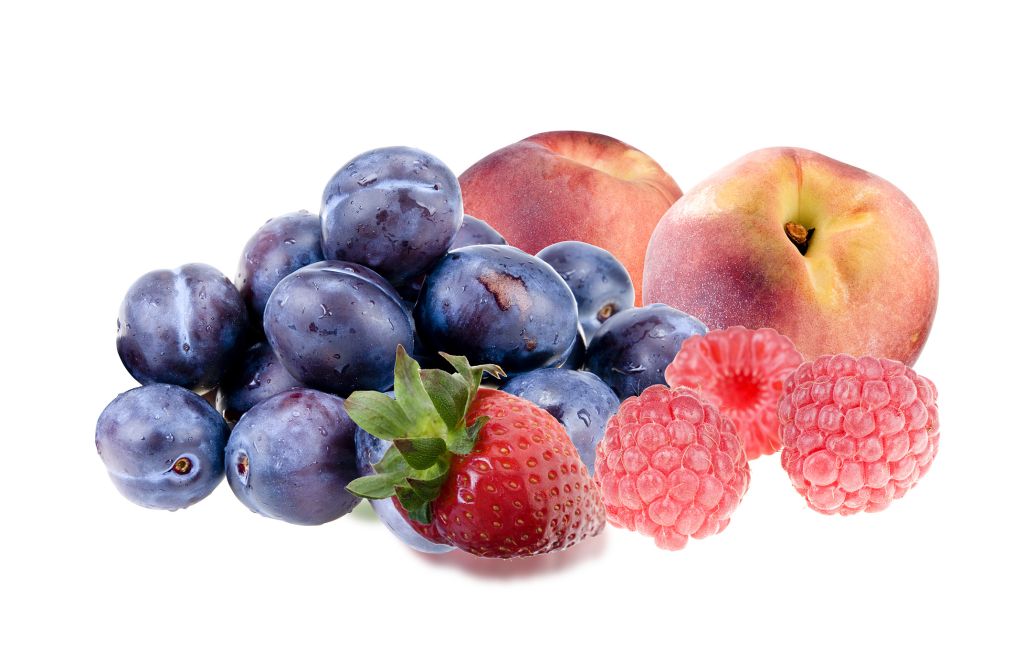
Fruits are whole, real and nature’s default healthy foods. They are convenient; easily stored and easily prepared for an easy-to-grab snack or whenever your hunger pangs strike.
However, due to the increasing awareness of the dangers of sugar, some people are concerned that the sugar content in fruits makes them unhealthy.
How Much Sugar in Fruit
Fruit contains both fructose and glucose.
So does table sugar and high-fructose corn syrup.
Table sugar is near enough 50% glucose and 50% fructose.
As HFCS is a manufactured product, the glucose/fructose ratio can vary, but as created for end products such as soft drinks is about 60% fructose and 40% glucose.
Fruits vary greatly between species in their total sugar content and their glucose/fructose ratios.
Most of the fruits that are commercially available today have been selectively bred for generations to produce a tastier product, which generally means breeding for increased sugar content and usually reduced fiber content.
This can be easily tested if you have access to any heritage species of any fruit – they will invariably be pithier and less sweet than modern types.
Even so, the total sugar in a medium sized orange is about 12 grams while one cup of strawberries has 7 grams. Both fruits may provide you with an average amount of 50 calories and about 3 grams of fiber.
Add to that the amount of vitamin C, potassium, folic acid and other vitamins and minerals that you can get from these fruits.
The sugar content of fruit varies markedly – avocado less than 1%, apricots 9%, apples 13%, banana 15%, orange 9% - but at these percentages, consumption will result in feeling full without elevating blood sugar levels.
Your body will also have benefitted from an array of critical nutrients.
Sugars in Manufactured Products
On the other hand, one 20-ounce (600 ml) bottle of soda may provide you with 240 calories and 65 grams of total sugar.
Unfortunately, a bottle of soda does not contain any nutrients, as its composition is almost entirely sugar and water.
Ingesting this volume of sugar with no buffering from other dietary components such as fiber will spike blood sugar levels, cause an insulin release and a corresponding sugar slump that will trigger a hunger response.
In the meantime, the liver will be working overtime to convert the excess energy requirement into body fat.
No Comparison
Fresh fruit has a high sugar content compared to most whole foods and should be a component of a healthy diet.
Ideally, fruit should be considered the ‘sweets’ or ‘dessert’ component of that diet. When comparing the health benefits of fruit to processed desserts, soft drinks or other artificial sweets, it’s a no-brainer – fruits win hands-down.
It is also important to note that fruit juices and dried fruits may not be as healthy as whole fruits.
Fruit juices do not contain fiber, but they can be loaded with added sugar. Dried fruits are high in sugar content and since their size has been made smaller than the whole natural fruit, it can be easy to consume too much of its higher percentage sugar content.
High Fructose Corn Syrup

There is an abundance of contradictory information floating around regarding HFCS or high-fructose corn syrup.
This super common sweetener is hidden in a variety of foods and beverages.
Many ingredient listings try to disguise its inclusion since it has earned such a negative reputation.
Some sources claim that it is no worse for your body than regular table sugar and point out that both contain glucose and fructose.
Unfortunately for consumers, HFCS is one of the least expensive sweeteners around. Many processed food companies rely on this ingredient because of its relative cheapness.
This means that those products which contain a higher volume of sugar tend to contain HFCS, purely for commercial reasons.
Why is HFCS Bad for Health
The main components of what we call sugar are glucose and fructose. Glucose is the preferred energy source of our brain and body and is readily used as such.
Excess will be converted to fat. Fructose is not a preferred fuel and unless there is an absence of glucose will be very readily converted to fat. In the process of converting fructose to fat, which takes place in the liver, toxins are also produced.
Glucose acts similarly to protein, fats and complex carbs in that it suppresses the hormone ghrelin, switching off our hunger response.
Fructose does not elicit this response, so foods containing a higher ratio of fructose do not make us feel satisfied but encourage us to eat more.
So, while any excess consumption of sugar is bad for human health, fructose is considered the worst type to consume in quantity.
The high-fructose in the name defines the problem – HFCS in its most commonly used formula has a higher percentage of fructose than other sweeteners such as table sugar, which still has about 50% fructose.
Studies Prove the Dangers of high-fructose corn syrup
A study on rats found that those who consumed high-fructose corn syrup gained a substantial amount of extra weight compared to those with access to water sweetened only with table sugar. Both groups consumed the same number of calories.
A subsequent study tracked the rats’ weight gain over a timeframe of 6 months. The study found that the rats eating HFCS showed large increases in circulating triglycerides. This prevents the hormone leptin from signaling to your brain that you are full. The rats displayed excessive weight gain and belly fat.
These studies have rightfully pointed out the numerous negative health effects of high-fructose corn such as the development of diabetes, obesity and other disastrous health issues.

Read the Labels
The scary part is that when you start reading nutrition labels, you will see HFCS in everything from baked goods to beverages. People mistakenly choose these snack foods believing they will be good for satisfying their appetite, only to find that they are still ravenous a short time later.
For your health’s sake, it is vital to become a food detective and avoid this poison at all costs. It may take some time to determine where it is hiding in your favorite foods.
Be wary of salad dressings and sauces that you commonly choose for cooking, breads, crackers, jams, peanut butter, processed meats, protein bars, granola bars and condiments.
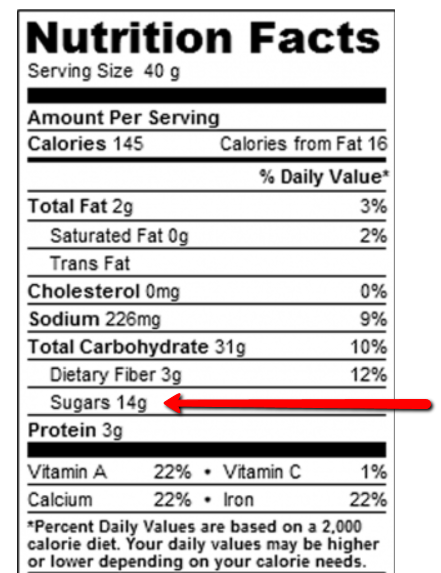
HFCS Hiding
When you are checking your labels, be on the lookout for high-fructose corn syrup masquerading as any of the following:
• Glucose syrup
• Maize syrup
• Dahlia syrup
• Tapioca syrup
• Crystalline fructose
• Fruit fructose
In Europe, it is often listed as Isoglucose and in Canada it goes by the name Glucose-fructose.
Avoid All Excessive Sugar Intake
The truth is that high-fructose corn syrup has been shown to be a major contributor to fatty-liver disease, diabetes and obesity.
For these reasons, numerous health advocates recommend avoiding it at all costs.
This does not mean for a moment that any other sugar is a healthy alternative. The finger is rightly pointed at HFCS as being damaging to human health, but any sugar consumed in similar volume will still be dangerous.
Different Sugars and Our Health
Research continues to show the negative impacts on human health of excessive sugar intake.
The bottom line is that all added sugar, that is, any not naturally contained in whole foods, is unnecessary and ultimately not good for us.
However, sugar is added to many of the processed foods we eat.
This raises questions as to whether the sugar that occurs naturally in foods such as fruit is any different to table sugar and other refined sugars.
The answer is that all sugars are not the same as regards human health.
It is becoming increasingly evident that we need to be aware of the kind of sugar that we are consuming and how our body reacts to it once eaten.
Effects of Sugar from Fruits
Fruits provide plenty of benefits because they are rich in minerals, vitamins, fiber and antioxidants. Sugar is also contained in fruit, as fructose and glucose.
The ratios of fructose, glucose and all the nutrient and fiber fractions vary among fruit types.
It is the fiber content of fruit that greatly determines what will happen to sugar once ingested and how quickly this fruit sugar can be broken down in the gastrointestinal tract.
Just because most fruits taste sweet does not automatically mean that they all have the capacity to quickly raise blood sugar levels.
Some fruits have a high fiber and low sugar content, which means that they will have less impact on blood glucose, as the sugars will be assimilated more slowly.
Fiber slows down the body’s digestion of glucose so that insulin spikes and subsequent energy crashes are prevented from happening.
In addition, the fiber content of fruit can help expand the gut which gives an individual the feeling of fullness.
Fruit Sugar and the Glycemic Index
Fruits can be classified based on their glycemic index.
The American Diabetes Association says that fruits which are heavy in fiber have a low glycemic index.
Examples of fruits that have a low glycemic index include apples, peaches, berries and oranges and other citrus fruits.

There are also fruits that have a higher glycemic index such as watermelon, grapes, raisins and ripe bananas.
These are the kind of fruits which should be consumed in controlled portion sizes, so they will not cause sugar spikes especially to people diagnosed with diabetes.
This means that you do not have to totally avoid or reduce your consumption of fresh fruits to keep your blood sugar levels at a normal level.
Be mindful of their glycemic index and watch out for dried fruits as their sugar levels are more concentrated die to their reduced volume.
Effects of Refined Sugar
We need to firstly recognize that all types of sugar are broken down by the body for use in several metabolic processes.
However, the differences between sugar types become evident when the effects on the body following ingestion are monitored and measured.
Refined sugar very quickly metabolizes into fructose and glucose causing a rapid increase in blood sugar levels and insulin release.
Refined sugar products will not only prevent you from experiencing that feeling of fullness, they affect hormones that make you feel even more hungry.
Therefore, you will find yourself craving more calorie-rich soda and cake even after you have already had enough.

Sugar Addiction
Sugar addiction is something that won’t get you imprisoned or ending up in an inpatient rehabilitation center. Many people make light of their predilection for tasty, sweet treats.
Sure, they taste good, but so do many other food items which don’t seem to invoke such a continual, compulsive need to consume them.
So, why is it that many people are so hooked on baked sweet cookies and other sugary foods?
How Sugar Affects Your Eating Behavior
Dr. Louis Aronne, a director of the Comprehensive Weight Control Center in New York said that eating sugar is much like ingesting cocaine.
People who habitually have a high consumption of sweets were found to have a very strong urge to consume these foods and gained elevated moods while and immediately after eating them.
However, when they are deprived of these sugary foods they can experience very strong negative responses consistent with withdrawal symptoms. Dr. Aronne also said that if a person consumes sugary foods in the morning they will set up a bad pattern for the whole day.
As they come down off their initial sugar high they will tend to unconsciously crave more sugar based food throughout the day.
Sugar Stimulates Your Brain Like Cocaine Does
A research led by a neuroscientist named Joseph Schroeder of Connecticut College showed that sugary foods stimulate a person’s brain exactly the same way that drugs such as morphine and cocaine do. This helps explain why so many people find it hard to resist foods that are loaded with sugar even if they are aware of its adverse effects on health.
This finding is part of research that hopes to find out more regarding the link between food motivations and human behavior. They chose Oreos in the said study not just because these cookies are highly palatable to humans and laboratory rats but also because they have been heavily marketed in so many countries that are considered to have lower socioeconomic statuses.
Sugar as An Addictive Substance
A study of the highly addictive quality of high fructose corn syrup was led by Dr. Francesco Leri of University of Guelp Ontario, Canada. This study showed that consumption of high fructose corn syrup can cause behavioral reactions among laboratory rats which are similar to the effects of using addictive drugs.
In the same study researchers showed that laboratory animals and humans have the same kind of vulnerability when it comes to developing a preference for high-sugar foods and for any other addictive substance.
Dr Leri said that this finding explains why people’s addiction to unhealthy foods has led to a global obesity epidemic. David Kessler, who used to be the head of Food and Drug Administration, stated that sugar and cigarettes share the same addictive effect.
These products both contain substances that are highly pleasurable but will only provide momentary bliss. The effects of substances, including sugar, that provide a highly hedonic effect are so strong that they dominate thinking about immediate consumption.
How Sugar Affects Dopamine Production
Another study also showed that rats were found to ingest sugar in a manner that is similar to a human bingeing on sweet foods.
This sugar binge stimulated the brain to produce dopamine before and after sugar consumption and the effect was said to be similar to individuals taking heroin.
Experts also confirmed that high consumption of sugary foods can lead to changes in the level of production as well as availability of dopamine in the brain’s receptors. This means that for a person to experience that same feeling of “high”, they would need to consume more sugar or more drugs the next time around.
How to Stop Sugar Cravings
Many people from countries all over the world are addicted to sugar without realizing it. For many, sweet treats have become a comfort food.
Some people claim they have been genetically predisposed to crave sugar. The bottom line is that sugary foods are extremely detrimental to your health.
Giving up Sugar May be Difficult
There is absolutely no doubt that limiting or giving up sugar intake will benefit your health. Sugar provides no nutrients but causes problems to your health. The only perceived gains are taste and satisfying a compulsive urge.
However, if your body is conditioned to high sugar intake you can expect to go through a period of withdrawal and the symptoms can be painful and frustrating. This period can last from a couple of days to two weeks. You may experience headaches, agitation and mood swings.
The result will be worth it, for your health’s sake, but it will require effort, especially in the beginning. If you are serious about stopping your sugar addiction, the following advice will prove useful.
Look for a Substitute
You may want to try some natural, herbal teas to satisfy your cravings.
Unsweetened beverages are a great option to fill you up and rehydrate. Some satisfying choices include: green tea, blueberry tea or peppermint tea.
Dried fruits, almonds, raisins or some trail mix can be another healthy snack option.
Go easy on the dried fruits, however, as they can be quite high in sugar content by weight and volume compared to the naturally hydrated version.
It will take some active willpower; however, soon you will be able to make better choices when the sweet cravings take over.
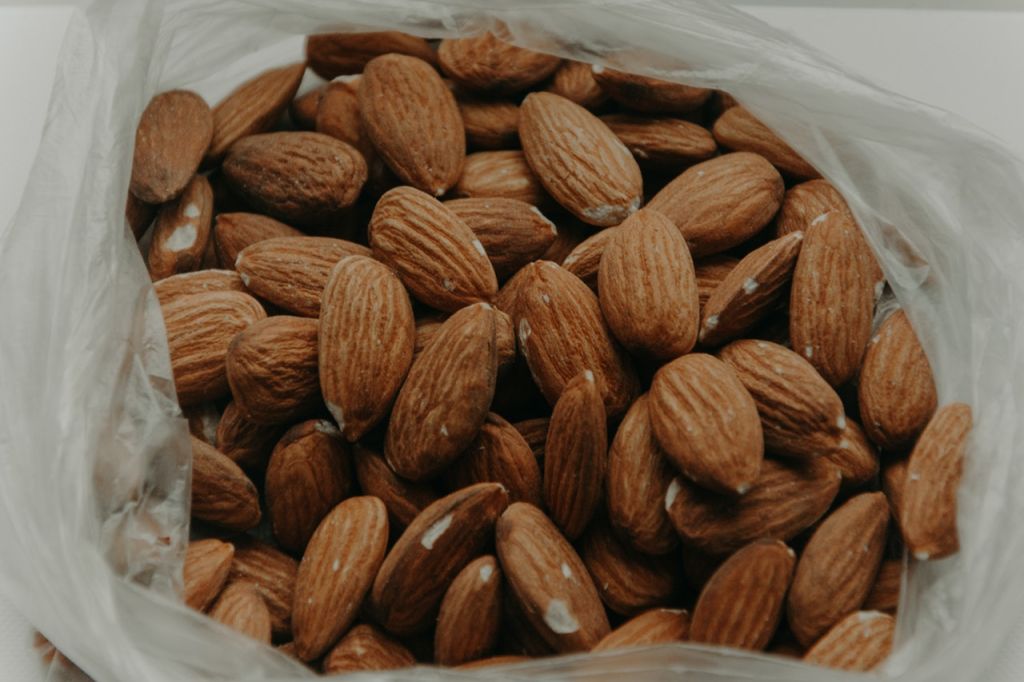
Make Sweets Less Accessible
Don’t sabotage yourself. Stopping your sugar cravings will be difficult if your cupboards, fridge and counters are laden with high sugar snacks, candies or chocolates.
If you are at work, ensure that sweet treats can no longer be found near your work station. Keep some sugar free gum at your desk and in your car for a quick fix.
Get the flavor without the sugar and the associated calories.
When you go shopping, avoid going down the junk food aisles.
Read the labels on “health food bars”, these are often sugar bombs in disguise. Instead, keep your kitchen filled with fresh fruits and other healthy snacks which you can easily grab whenever you are craving something sweet.
Brush Your Teeth Right Away
Make a habit of brushing your teeth very soon after eating your meals. Some people often crave something sweet after they have finished their meals because they do not like the yucky aftertaste left in their mouths. If, however, you try to brush your teeth right away after eating, the minty taste of toothpaste will help stomp out the urge to consume something sweet.

Wait for Ten Minutes
Nutrition experts advise that sugar cravings may only last up to ten minutes.
So, the next time you feel the urge to look for something sweet, wait for ten minutes first and allow the craving to subside.
This habit will make it easier for you to attain self-discipline and gain better control over your sweet cravings.
Find something productive or creative to do while you wait, so you are not focused on your cravings.
If you need incentive to convince you to overcome your addiction to sugar, here are some valid reasons why you should call it quits:
- Sugar is not healthy in any way
- Besides having zero nutritional value, it is something that will only deprive you of the nutrients needed by your mind and body in order to function well. What’s more, when sugar is processed inside your body, it will strip away Calcium and other mineral resources while depleting your healthy intestinal flora.
- Sugar makes you anxious
- Eating more of foods that contain sugar can make you more vulnerable to the symptoms of anxiety and depression. Consuming these sugary foods will increase your insulin production and the sugar/slump cycle can elevate adrenalin levels.
- Sugar destroys your pancreas
- Studies reveal that sugar will compromise the ability of your pancreas to function well. When this occurs, you can find yourself becoming susceptible to kidney problems, diabetes and heart problems.
- Sugar ruins your teeth The more you eat foods that contain sugar, the more you increase bacteria build-up inside your mouth which will contribute to enamel erosion.
Although sweet foods are often used as rewards, bear in mind that this will never reward your health.
If you want to live a longer and healthier life, banish sugar cravings.
After all, suffering an amputation due to diabetic complications is not such a sweet thought, isn’t it
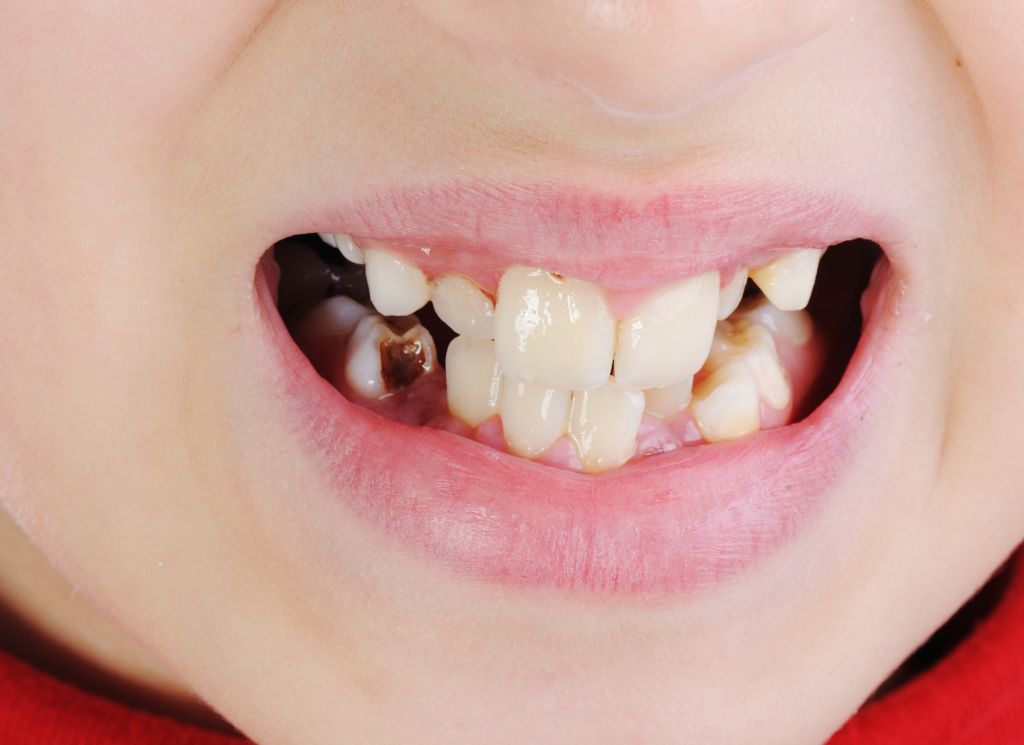
How Sugar Consumption Can Cause Anxiety and Depression
Numerous studies have created a wider understanding of the damaging effects sugar can have on physical health, but not as many people are aware of the impact that sugar can have on their mental health.
In addition to causing an inflated waistline, diabetes, heart disease, cancer and arthritis high sugar consumption can also increase the risk of anxiety and depression.

Sugar acts in more than way to negatively affect our physical, emotional and mental health.
In a similar manner to many other substances which cause a heightened response, such as alcohol, drugs or even coffee, while it may provide short term pleasure or appeasement, it negatively affects our immediate and long-term health.
Sugar Dependency and Mental Health
Again, like these products, it creates a habit or dependency that can become an addiction, meaning it not only causes problems when consuming it, but also in its absence.
This is particularly true of the mental and emotional aspects of sugar consumption. Many people fall back on sweets, treats and caffeinated soft drinks as comfort foods and mood elevators.
Although most will not like the analogy, if this is unconscious or ‘driven’ behavior, it is not unlike a drug or alcohol addiction.
The absence or withholding of sugar from those who have created a dependency for themselves can cause feelings of anxiety and stress.
Blood Glucose Levels and Mood
This can evolve into depression and in extreme cases, schizophrenia. High sugar consumption causes sudden peaks and troughs in a person’s blood glucose levels.
Something as seemingly benign as a bottle of soft drink can cause a blood sugar spike and subsequent rapid insulin release, leading to a ‘sugar crash’. A steady supply of glucose in the brain is very important for it to function at its best.
Persistent and repeated sugar spikes and slumps can cause irritability, insomnia, fatigue, profuse sweating and excessive thirst. In addition, sugar slumps will add to the difficulty of focusing on a given task as well as poor memory.
To overcome this, those affected often treat the problem with another sugar hit.
A high intake of sugar elevates the levels of blood insulin which in turn will also raise the levels of endorphins in the system, which is why we have a feel-good response in the short-term.
Again, like most things that affect our emotional stability, resistance becomes an issue. This means it takes increasingly more sugar to achieve the same effects, while the increasing amounts do more and more damage.
Our brain works constantly to maintain homeostasis in our entire system, if anything spikes or affects the balance, it acts to restore normality.
Chronic sugar consumption can cause some of the brain’s endorphin sites to close in order to control the number of endorphins that are released.
Again, this means that between sugar hits endorphin output can be restricted when it is most needed.
Unfortunately, reduced levels of endorphins have a causal effect on anxiety and mild to severe depression.
Sugar Affects the Brain’s Growth Hormones
A British Psychiatric researcher named Malcolm Peet conducted a research regarding the link between a person’s diet and the emergence of mental illnesses. Some of the initial findings of his research indicate a very strong connection between sugar consumption and higher risks of depression and schizophrenia.
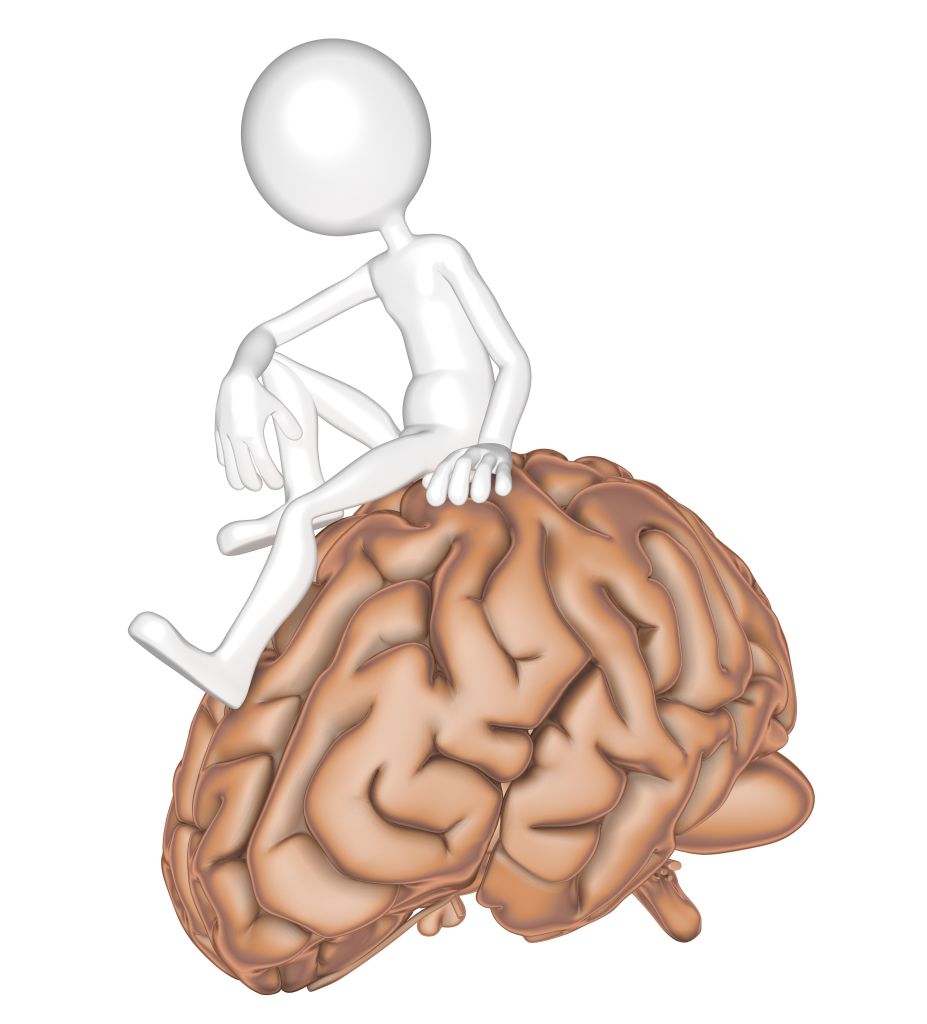
The toxic effects of sugar, specifically refined sugar, was found to be responsible for suppressing the activity of growth hormones called BDNF which are crucial for the development and proper functioning of the brain.
Research showed that people who have been afflicted with the symptoms of depression were found to have low levels of BDNF. Reduced levels of BDNF can adversely affect the development and growth of neurons resulting in poor communication and functioning of brain cells.
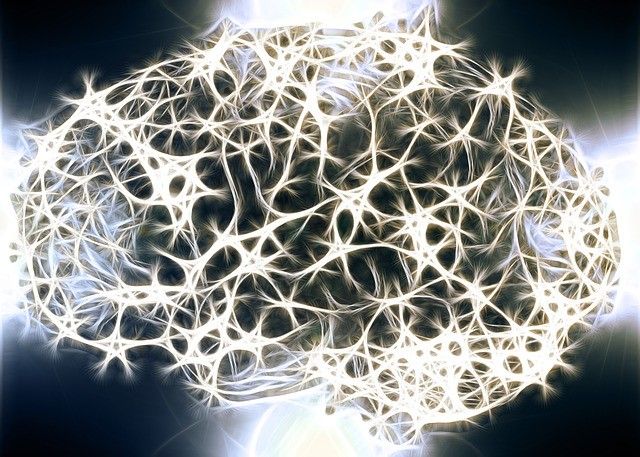
Sugar Consumption Causes Chronic Inflammation
Another factor that strongly links sugar consumption to depression is the ability of sugar to cause chronic inflammation. This will also cause disruptions in the normal functioning of the immune system that can adversely impact your brain and increase your risk of depression.
Sugar not only helps other toxins to enter the person’s brain through indirect gut inflammation but it can also enter the blood brain barrier. This will then lead to the release of cytokines into the brain which causes an inflammation response.
The presence of inflammation in the brain can adversely affect the proper functioning of neurotransmitters particularly in the hippocampus thereby affecting one’s mood, memory, learning and reduced ability to perform other functions.
Decreased Consumption is a Must
If you affected by mood swings, anxiety or depression, strongly consider that your diet may be playing a big part. Monitor you’re eating behaviors, especially those induced by stressful events. Be more mindful of your unconscious behaviors and take steps to reduce your sugar intake if you suspect it is adding to your problem.
How Sugar Damages Your Brain
An article published in the journal Nature claimed that sugar is a toxic substance that should be regulated like alcohol and tobacco. This conclusion was based on many studies conducted on the effects of sugar in the body including how it impairs several brain functions.
How Sugar Affects the Brain’s Nucleus Accumbens
When a person eats sugary foods there is a specific area in the brain called the nucleus accumbens that initially releases high amounts of dopamine.
When a person frequently eats sugar-containing foods their dopamine receptors will start to down-regulate, resulting in fewer receptors of dopamine in the brain.
As a result, the next time that an individual eats a sugary food the effect it has in the brain is no longer as intense as it was the first time it was eaten. Therefore, the person must eat more of these sugary foods in order to experience that same level of “pleasure”.
Studies show that the effect of these sugary foods on the brain is similar to other addictive substances such as nicotine and cocaine. This explains why sugary foods causes chemical reactions in the brain that can cause intense and hard-to-resist cravings in a person.
How Sugar Affects the Brain-Derived Neurotrophic Factor
Research shows that frequent consumption of large amounts of sugary foods, specifically those that contain “added sugar” can lead to reduced production of BDNF.
BDNF or Brain–Derived Neurotrophic Factor is a chemical in the brain that plays a crucial role in the development of neurons and brain tissues that are responsible for forming new memories.
Without BDNF, an individual will have increased difficulty storing memories and learning new things. Low levels of BDNF are commonly found among people who have impaired glucose metabolism, particularly those who have been diagnosed with diabetes.
If a person continues to consume foods that contain added sugar their BDNF will also continue to decrease, which will contribute to the worsening of insulin resistance.
This means the person will more likely to suffer from type 2 diabetes and other illnesses that are linked to metabolic syndrome. Unfortunately, the destructive cycle of high sugar consumption and lowered levels of BDNF are difficult if not impossible to reverse.
High Blood Sugar Levels Linked to Brain Shrinkage
A study led by Dr. Nicolas Cherbuin of The Australian National University showed that people who have higher blood sugar levels even within the accepted normal range were found to have shrinkage in areas of the brain that are responsible for emotional and memory processing.
Over a four-year period, those with higher blood glucose levels (but still within the ‘normal’ range, not diabetic or pre-diabetic) showed a marked reduction in mass of specific areas of the brain compared to those with lower blood sugar.
Experts say that this finding strongly suggests that high blood sugar levels have adverse effects on the brain even if a person does not have diabetes.
These are just a few of the many studies which show that people are slowly but surely damaging their health through sugar consumption.
It is in this light that health advocates are now pushing to put an end to high sugar consumption.
Health groups are encouraging everyone to eat more whole and unprocessed foods and reduce foods with a high sugar content.
Those concerned with their family’s health should do so now, rather than wait for governments to issue warnings or set regulatory policies on sugar consumption and production.

The Link between Sugar and Cancer
Is there a link between sugar consumption and cancer?
More specifically, does sugar cause cancer?
If not, does eating sugar feed a cancer once it has started? Are there safe levels of sugar consumption.
While it is becoming apparent that added sugar is not good for us, it is being made abundantly clear that excess consumption is extremely damaging to our health. Incidences of cancer are up to double in patients classified as obese.
The link between sugar and obesity and type two diabetes has been conclusively established, but a definite link between sugar and cancer, either as a cause or a catalyst, is still being researched and strongly debated.
Many researchers have undertaken studies to find the answers.
Others will piggy-back off their findings and further increase our understanding of the effects of sugar on human cancers.
Excess Sugar Induces Cancer
Dr. Custodia Garcia-Jimenez of the University Rey Juan Carlos in Madrid and a team of researchers studied patients with high levels of blood sugar for prolonged periods. They shed light on how persistently elevated glucose levels create a bodily environment that is conducive to the development of different cancers.
Excess sugar in the digestive system triggers the release of a hormone called GIP, which instigates the production of insulin. At the same time, it also increases the production of a protein called beta catenin.
Levels of this protein are dependent on sugar levels and elevated levels have been proven to be cancer-inducing.
High Insulin Levels Promote Tumor Growth
Compounding this is the problem that increased insulin levels will also increase the level of inflammation which makes the body more prone to cancer. High insulin levels can induce tumor cell proliferation which takes place via the insulin signaling pathway called IGF-1 (Insulin-like Growth Factor).
Cancer Cells Need Sugar for Metabolism
Normal cells and cancer cells do not metabolize in the same manner. Normal cells require oxygen to be able to carry out their various metabolic processes while cancer cells function in an anaerobic environment. In other words, normal cells need oxygen while cancer cells despise oxygen.
Cancer cells instead metabolize through fermentation which is a process that requires sugar. In the presence of adequate sugar, the metabolism of cancer cells can be eight times greater than the metabolism of normal cells.
Once these cancer cells establish a dwelling place inside the human body, they largely depend on the availability of glucose for them to continue to thrive.
Tumors Feed on Sugar
There are many claims that sugar feeds tumors. Palliative care patients often undergo exponential tumor growth as well-meaning caregivers provide sugary treats and drinks to the patient.
Scientific research including a group of researchers from Huntsman Cancer Institute in Utah have outlined why and how this occurs.
Their research was published in the journal Proceedings of the National Academy of Sciences, showing that tumor cells consume greater amounts of glucose compared to normal cells. Their research paper documented how the process of sugar feeding tumors takes place inside the body.
Sugar Deprivation May Lead to the Death of Cancer Cells
Another group of researchers lead by Dr. Thomas Graeber revealed how glucose starvation can activate a signaling amplification loop that can lead to the death of cancer cells.
It is through the help of these discoveries about the significant link between sugar and cancer that some forms of alternative treatments are more commonly being recognized, although not totally accepted by all the mainstream medical community.
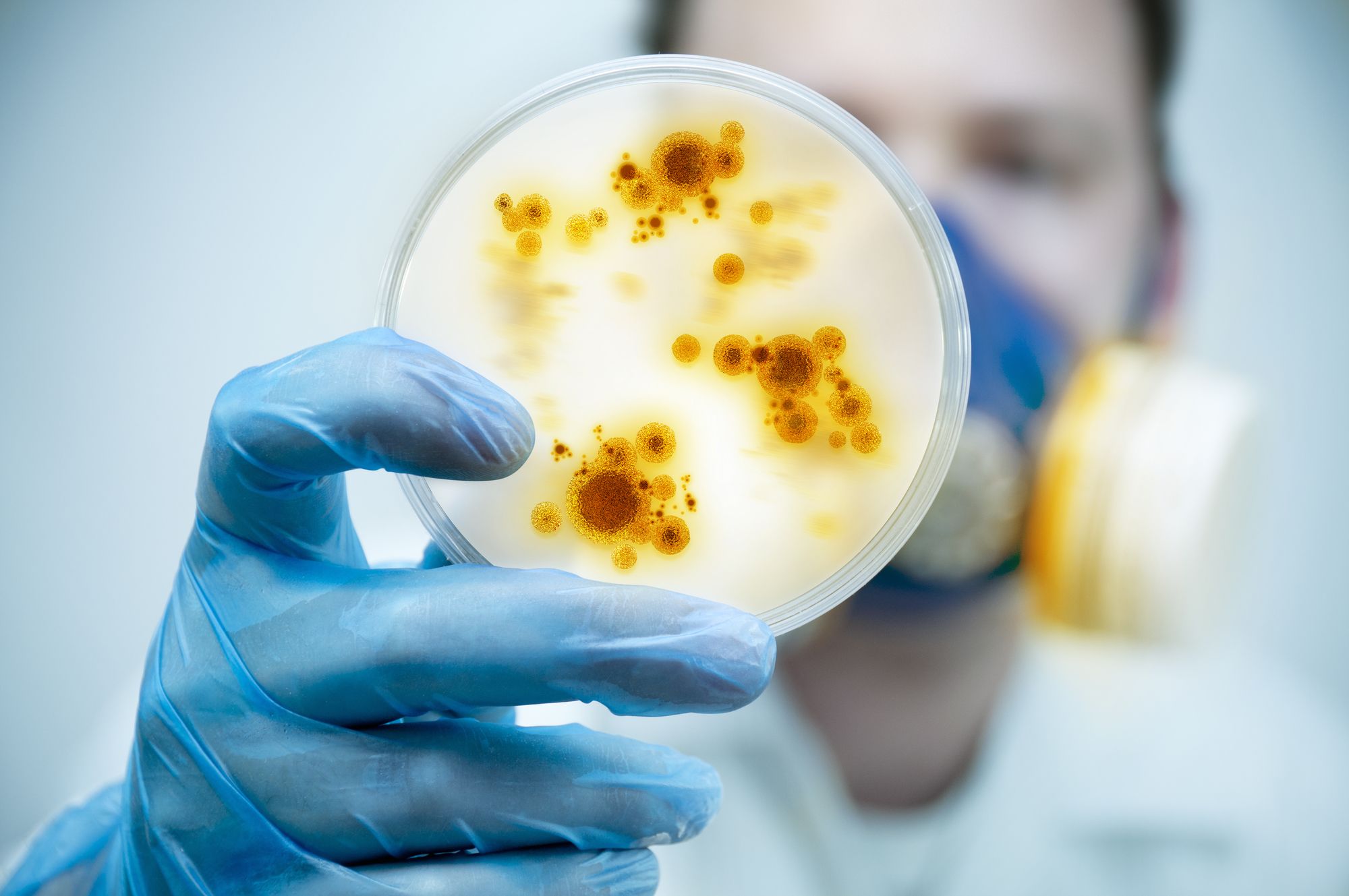
Conclusion
Cure and Prevention
While there has been much public pleading for a cure for cancer, emerging knowledge is shining a light on cancer prevention.
There is an increasingly strong case being made that excess sugar consumption puts the body in a state that is conducive to the development of cancer cells.
More and more we are realizing the importance of diet as our best medicine.
Abstaining from added sugar may be one of the simplest and most powerful cancer preventions available.





